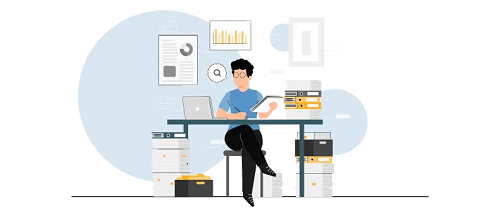In the ever-changing world of investing, large-cap funds have historically offered relatively stable long-term growth potential. While their wealth-building potential is typically less than that of medium-sized and small companies that are in a rapid expansion stage, the present market environment indicates that large cap stocks are in an attractive position for long-term investing.
Bajaj Finserv Large Cap Fund NFO ends on August 12th, 2024
Amid this favourable outlook for the large cap segment, Bajaj Finserv Asset Management Ltd. has launched the Bajaj Finserv Large Cap Fund. This fund has a concentrated strategy, with a focus on a handful of high-conviction stocks and a high active share. The New Fund Offer period – the first time that the fund is opened to investors – began on July 29th and is on till August 12, 2024.
This article tells you more about the Bajaj Finserv Large Cap Fund and the emerging opportunities for large cap stocks in India.
What are large cap funds
Large cap funds invest predominantly in the country’s biggest companies in terms of market capitalisation. These are companies that are listed between 1 and 100 on the stock exchange and are typically industry leaders with healthy balance sheets and strong fundamentals. This is why large cap stocks tend to be less volatile than mid cap and small cap funds.
Bajaj Finserv Large Cap Fund: A unique proposition
The newly launched Bajaj Finserv Large Cap Fund seeks to capitalise on emerging opportunities in the market and aims to provide – returns that beat the benchmark in the long term. For this, it has adopted a unique approach with the following features:
Concentrated strategy: Unlike funds whose portfolio is closely aligned with the benchmark index, the Bajaj Finserv Large Cap Fund has a concentrated strategy. The fund will have a focused portfolio of just 25-30* stocks.
High active share: This focused strategy enables the fund to have a high active share, which indicates that the weightage of stocks in its portfolio significantly differs from the benchmark index. A high active share allows fund managers to implement their strategy and allocate capital more flexibly. It also indicates a high degree of active management, which means greater potential to generate alpha and beat the benchmark in the long-term.
High-conviction stocks
The funds focused portfolio comprises high-conviction stocks, which are companies that the fund managers believe show potential for significant growth. These stocks are selected based on extensive research and analysis, considering factors such as competitive advantage, market leadership and robust financial health. Investing in high-conviction stocks means that the fund managers have strong confidence in the selected companies ability to deliver superior returns in the long term.
Current scenario and emerging opportunities
Large cap stocks in India are positioned favourably for long-term investing in the current market conditions. Here are some reasons why:
Nearing fair valuation: A recent study by Bajaj Finserv Asset Management Limited shows that the current valuation of the large caps is close to their long-term average of 23.1(long-term average of trailing twelve months Price to Earnings Ratio). This means that large cap stocks are nearing their fair valuation. This puts large cap stocks in an attractive position for long-term investment.
When stocks are fairly valued, it indicates that their market prices are in line with the intrinsic values of the respective companies. In comparison, over-valued stocks are those whose current market price is inflated in comparison to their fundamentals, meaning that a price correction in the near future could lead to a fall in stock prices.
Relatively low volatility: The study also shows that large cap funds have historically declined lesser and recovered faster than mid and small cap categories during market downturns. They have also performed better in narrow and flat markets. (Past performance may or may not be sustained in the future).
India’s growth story: As India’s rapid rise on the global stage is expected to continue in the coming years, and its leading companies will be at the forefront of this expansion. Moreover, unlike the mature giants of developed countries such as the US, India’s large cap companies offer greater scope for expansion and growth.
How to invest in Bajaj Finserv Large Cap Fund NFO
The Bajaj Finserv Large Cap Fund is thus foraying into the large cap space at an opportune moment. Through its focused strategy and quality-over-quantity approach, this fund seeks to set itself apart from its peers in the large cap fund category. This can make this fund a suitable option for investors seeking benchmark index-beating return potential in the long term.
During the NFO period till August 12th, 2024, investors can purchase units at a face value of Rs 10. Investments can be made in lumpsum as well as SIP, and the minimum investment amount is Rs. 500 for both. Investors can use online tools such as a lumpsum calculator or an SIP calculator to help them plan their investments.
After the NFO window closes, the fund will be reopened for fresh subscriptions on or before August 23rd, 2024. Investors can then purchase units at the applicable Net Asset Value (NAV), which is based on the market prices of the underlying securities, among other factors.
Investors can subscribe to the scheme online or offline through Bajaj Finserv Asset Management Ltd. as well as mutual fund distributors and aggregators. To invest online, visit www.bajajamc.com and click on ‘Invest Now‘ on the Bajaj Finserv Large Cap Fund scheme page or the login/register tab on the home page.
*The above investment strategy is based on prevailing market conditions and opportunities available at the time of investment. The Fund Manager reserves the right to change the count of stocks invested based on the SID and the opportunities available at the time of investment done, Position in derivatives will not be considered for the computation of total number of stocks in the portfolio.
Mutual Fund investments are subject to market risks, read all scheme related documents carefully.

